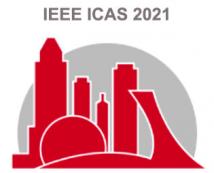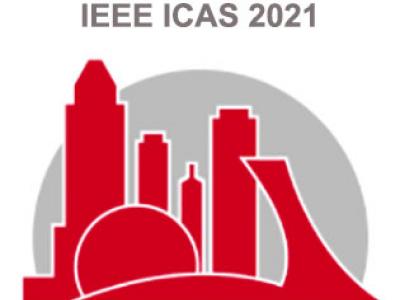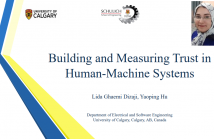
IEEE ICAS 2021 is a premier international forum for presenting the technological advances and research results in the fields of theoretical, experimental, and applied Autonomous Systems (AS). IEEE International Conference on Autonomous Systems (ICAS 2021) is sponsored by IEEE Signal Processing Society (SPS) through IEEE SPS Autonomous Systems Initiative.

- Read more about Towards explainable semantic segmentation for autonomous driving systems by multi-scale variational attention
- Log in to post comments
- Categories:
 55 Views
55 Views
In human-machine systems (HMS), trust placed by humans on machines is a complex concept and attracts increasingly research efforts. Herein, we reviewed recent studies on building and measuring trust in HMS. The review was based on one comprehensive model of trust – IMPACTS, which has 7 features of intention, measurability, performance, adaptivity, communication, transparency, and security. The review found that, in the past 5 years, HMS fulfill the features of intention, measurability, communication, and transparency. Most of the HMS consider the feature of performance.
- Categories:
 32 Views
32 Views
- Read more about A VISUAL CONTROL SCHEME FOR AUV UNDERWATER PIPELINE TRACKING
- Log in to post comments
- Categories:
 30 Views
30 Views
- Read more about Estimation of Fields Using Binary Measurements From a Mobile Agent
- Log in to post comments
- Categories:
 17 Views
17 Views
- Read more about Improving a User's Haptic Perceptual Sensitivity by Optimizing Effective Manipulability of a Redundant User Interface
- Log in to post comments
Human perceptual sensitivity of various types of forces, e.g., stiffness and friction, is important for surgeons during robotic surgeries such as needle insertion and palpation. However, force feedback from robot end-effector is usually a combination of desired and undesired force components which could have an effect on the perceptual sensitivity of the desired one. In presence of undesired forces, to improve perceptual sensitivity of desired force could benefit robotic surgical outcomes.
- Categories:
 15 Views
15 Views
- Read more about WSO-CAPS: An Automated Framework for Diagnosis of COVID-19 disease from Low and Ultra-Low Dose CT scans using Capsule Networks and Window Setting Optimization
- Log in to post comments
The automatic diagnosis of lung infections using chest computed
tomography (CT) scans has been recently obtained remarkable significance,
particularly during the COVID-19 pandemic that the early
diagnosis of the disease is of utmost importance. In addition, infection
diagnosis is the main building block of most automated diagnostic/
prognostic frameworks. Recently, due to the devastating effects
of the radiation on the body caused by the CT scan, there has been
a surge in acquiring low and ultra-low-dose CT scans instead of the
- Categories:
 18 Views
18 Views